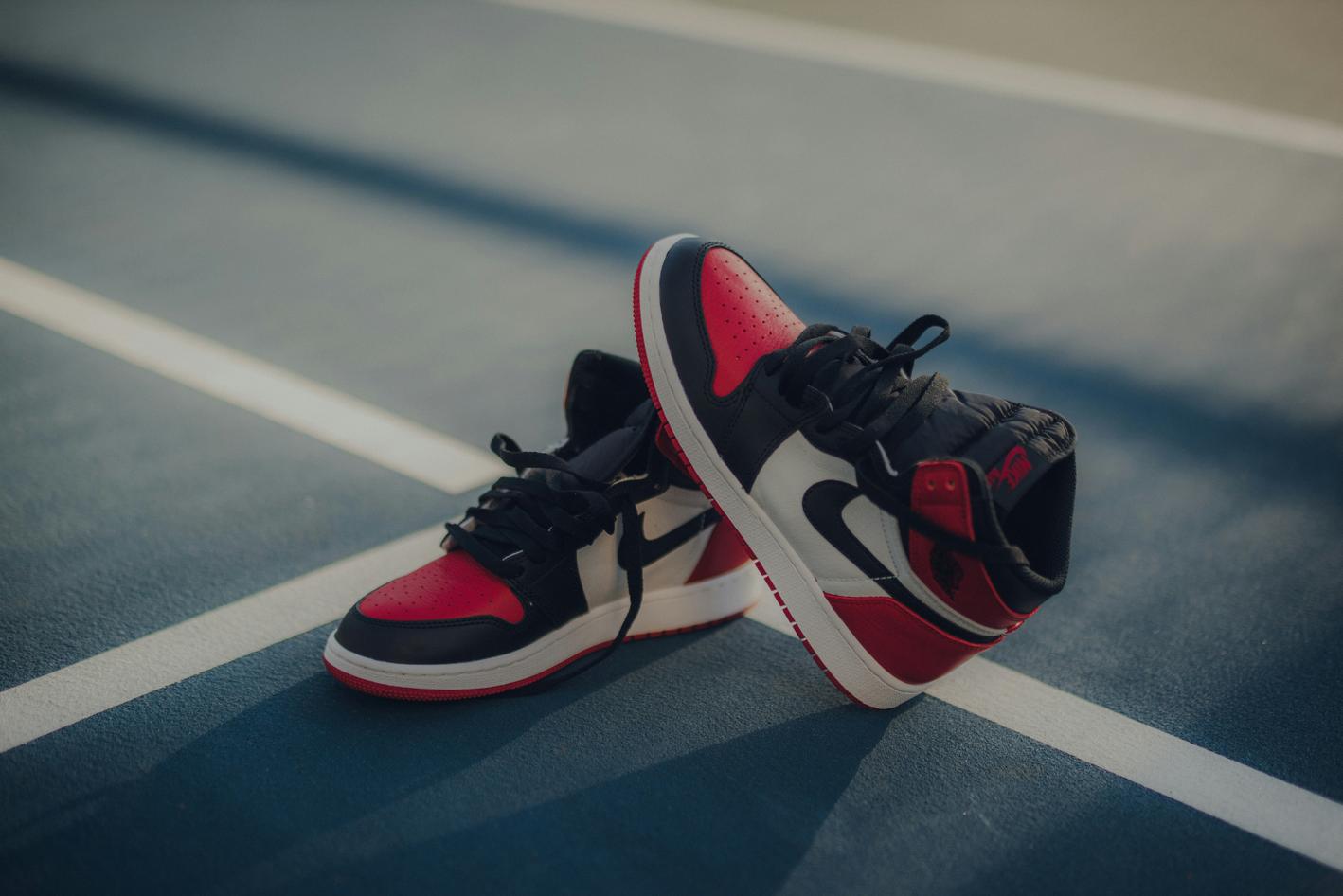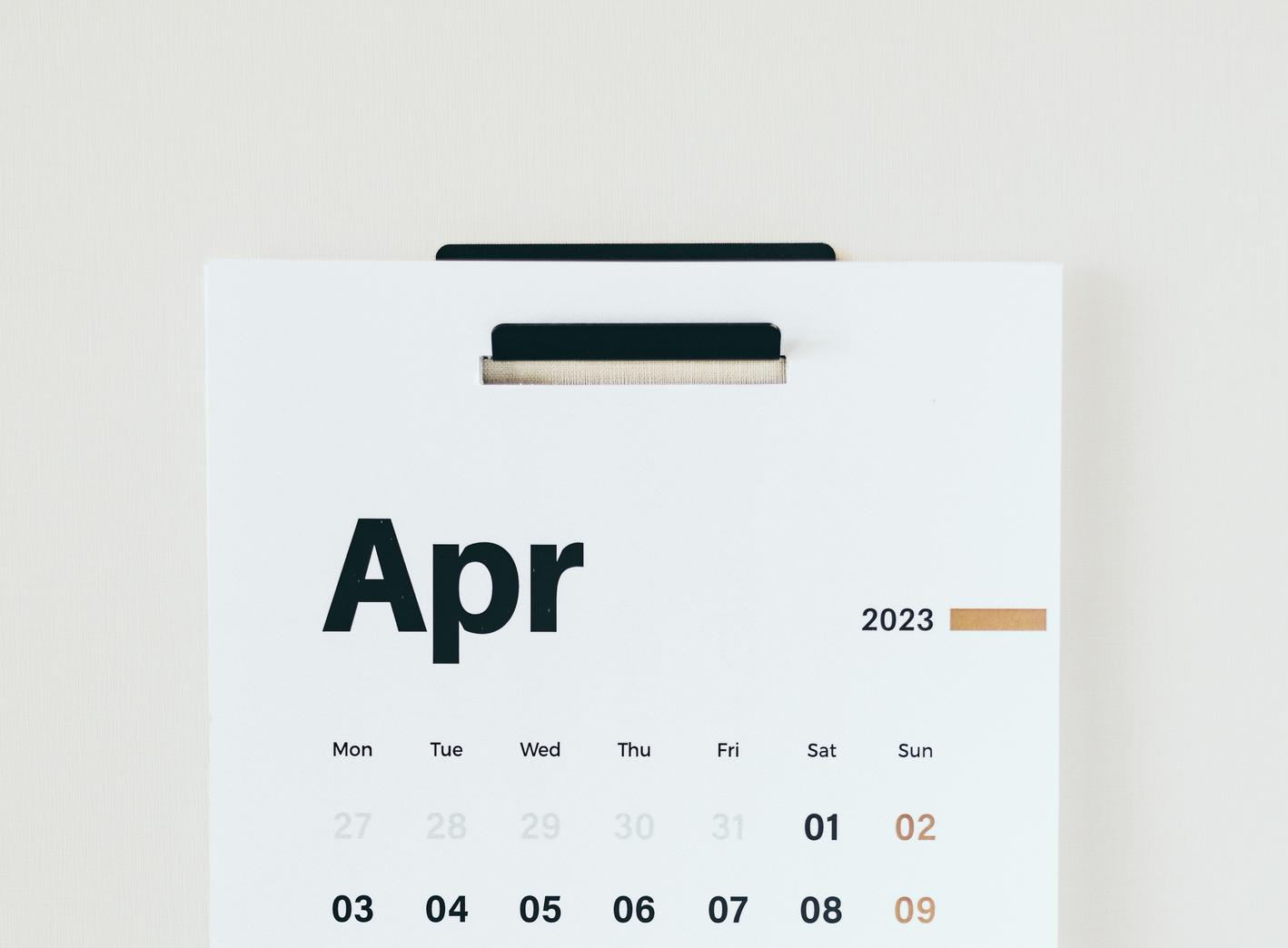If you’ve ever taken a course on how to promote yourself online, whether you’re a podcaster, a video blogger, a short-form creator or a newsletter writer, you’ll have seen how easy it was for the course creator, and that all you need to do is follow their formula.
The problem is, what works for them won’t work for you, because everyone’s constantly on the lookout for advice on how to grow their channel or get more people to come to their gig… so they’ve already got a head start.
The truth is, long-term goals like getting a hundred thousand YouTube subscribers and bagging your first sponsor almost always need you to do one thing: show up as often as you can.
That’s really the secret to success, outside of accidentally going mega viral. And that’s it. That’s how you make a long-term goal stick – by doing the thing over and over again as many times as you can, even on days when you just can’t be bothered.
So, that’s your episode for this week. Onto the next one.
Unless… could it be there’s more to it than “just showing up”? And it’s alright saying “just do it” on those days when you can’t find the inspiration… but when your brain’s pushing against you, is there anything you can do to help keep you on track?
Meet James
What did you do the last time you were smashed in the face by a baseball bat? For James Clear, the Internet’s appointed expert on habits, that cranial pummelment culminated in a blog, a bunch of public speaking gigs, a best-selling book, and an app, all about habits.
Clear formed healthy habits to heal himself after a pretty serious injury in high school. This sparked a study in habits that’s now in its second decade. His newsletter goes out to 3 million readers, and his book has sold over 20 million copies worldwide and been translated into more than 60 languages.
Atomic Habits is really a book about change, but if you’re anything like me, you get excited about new stuff – your new slimmer body or your amazing guitar skills – and then there’s a moment… could be a week from now, could be three months. But it comes for us all – that moment where you go “man, what’s the point? I’ve done all this work and I’m not seeing any results, so why bother?”
We’re bad at uncertainty
Imagine you’ve just poured yourself a tall glass of lemonade. As you swirl the ice around in your drink, you notice a single ice cube sitting on the kitchen counter. Whoops, you must’ve missed that one when scooping up your ice. But now your glass is full, so what do you do?
Imagine just watching that ice cube sit on the counter for a bit. As the warm of the kitchen slowly heats up the molecules in the ice, tiny, microscopic changes happen to its makeup. Bit by bit the molecular structure changes, until suddenly the cube shifts from a solid block, to a droplet, to a puddle.
That’s the annoying, maddening thing about change, and it’s something observed by James Clear in his book about habits. Like trees growing deep roots underground, we don’t see the change that’s happening until there’s some sort of tipping point. And what makes it doubly maddening is we don’t know when that tipping point is going to be.
We humans hate uncertainty. We’re bad at estimating stuff and we’re bad at being patient if we don’t know how long something will take. And if you think we’re bad, computers are even worse.
The trouble we get ourselves in when we think about our own progress, is we often end up measuring the wrong thing. The thing we put at the end of the progress bar next to the “100%” label is usually the outcome – the goal – rather than the sum of the actions it takes to get to that goal.
As Clear points out, everyone has goals. But what separates those who achieve their goals and everyone else is not that they wanted it more or they were hungrier… it’s that they did the things over and over again.
Change your identity, build habits
So far, so abstract. So let’s make it more real. Let’s say you want a million followers on YouTube. You’re sensible enough to know it’s not a vanity metric, but an indicator that you can monetise your videos and maybe get a passive income stream.
But you have absolutely no control over that number, so what’s the point in measuring it? Doesn’t mean you ignore it completely, but the actions you take can only influence it. So what do you do instead? You measure what you can control.
You know what the algorithm likes, so you measure how many times you posted this week. You measure how many interactions you had with other accounts. You measure the time you spent planning your videos vs shooting them… or how many different shots you included.
The point is that you measure what you can control, not the outcome.
I think there’s good advice here, but it’s not always that easy to follow. First off, how we define “health” is different for each of us, and spans mind, body, and – if you’ll forgive me – the soul… less in a religious sense, more in a “wow, that jambalaya really hit the spot” kind of sense.
A “healthy” person might not have a bunch of messages in their brain telling them they need to eat that fourth doughnut or finish that entire pizza. Similarly, a “successful” YouTuber probably has assistants and lighting people and dedicated mic operators and professional editors.
But he’s onto something here, so I think the nudge it needs is to ask “what would person X do if they were in my shoes”, y’know? “What would a healthy person do for lunch if they only had a fiver to spend?” or “What would a YouTuber with a million followers do if they only had an Android phone?”
And before you get at me in the comments, I don’t mean “only an Android phone”… I just meant “only one device as opposed to a suite of equipment”. And no, you’re being defensive.
OK, so identity is a big part of this, and I think asking questions is a better approach than making statements… at least for me. I don’t know about you, but I’m not the sort of person who can stand in front of a mirror and go “I am healthy, I am happy, I am loved”, ‘cos I just see a collection of wrinkles and hair in unsightly places and think “meh, not today”.
Asking a question like “What would a healthy person do in this situation” or “if they were in my shoes” can offer you a bit of grace and flexibility, too.
If you’ll permit me a quick detour: I was in my local chip shop on Friday to pick up something for my new TikTok cooking show. Yes I did say those words out loud and yes they are all true things that happened.
The guy being served before me had about £1.50 on him. His meal cost a little over a pound and he asked if the person serving him wouldn’t mind throwing on a few extra chips and some sauce if he gave them the full sum of money he had. The lady behind the counter did so and everyone went on about their day.
Sometimes the choices you make have to be tempered by your situation. On the days when you’re caught out on the high street, it’s lunch time and all you’ve got to your name is a £1.50, maybe the healthy person’s choice is to buy a Greggs sausage roll and see what tomorrow brings.
And I know all this talk of chippies and sausage rolls is interminably British. But we have to put up with Americans talking about Conan O Lately and being captain of the valedictorian sorority deepo as if those were real things… so I hope you’ll let this one slide.
Make it obvious

If you’re looking to build a new habit, the best way is to figure out how it fits into your existing routine. I keep forgetting to empty the cats’ litter boxes – you’d think the smell would be a clue but any cat owner will know, you end up just learning to live with a certain background level of poop smell after a while.
Anyway, if I want to get into the habit of mucking them out every day, I can attach it to something I already do on instinct.
When I get up, the first thing I do is feed the cats. This is so ingrained a habit I even built it into a text adventure game I made in 2020 but that’s a story for another day.
I can implement something called “habit stacking”, where I attach a new habit to an old one. So now, after I’ve plooped the food into the cats’ bowls, I go straight to the litter box which is in the same room, empty that out, then do the same in the bedroom.
The key is that I start with the tray that’s already in the living room, because that’s where I’m standing at the end of the old routine.
If I keep forgetting to take my morning medication, I can stack that on, too. So once I’ve washed my hands in the bathroom after mucking out the cats, I take my pills.
These things can roll on, one to the next, until your morning is essentially on autopilot. Which is pretty ideal if you’re not a morning person.
Make it attractive

The second law of habit-building is to make it attractive. There’s a little mental jujitsu involved in some of this… and I’ll be honest, I’m not down for all of it. I’m not a big fan of “reframing” as frankly my brain’s too smart to fall for my own dumb tricks, so telling myself “I don’t have to empty the litter boxes every day… I get to” is utter poppycock. That said, reminding myself why I’m doing the thing is pretty useful. “I’m not just scooping poop into a bag; I’m freshening up my cats’ toilet, making them a little more comfy and making my flat not smell of shit all day long”.
Building something, like a YouTube channel, invariably involves doing stuff that isn’t the thing you set out to do in the first place. Like with building a business, you can’t just spend all your day designing logos; at some point you have to network, or follow up on late invoices, or navigate complicated notes from clients.
But we can pair something we have to do with something we want to do. I’m basically a cloth cap in human form so I like to put on some vinyl, maybe have a glass of something, and curl up with my iPad before I dive into a boring task like process a bunch of emails. If you’ve ever felt guilty about the amount of Netflix you watch, think about something low-stakes you can put on while you do your admin. Or if there’s housework to be done and you really can’t be arsed, jam on your headphones and stick on a playlist of stuff you can dance to like nobody’s watching. All of this has worked for me, and I’m 42 and I basically don’t want to do anything.
Make it easy

Next up is the third law: we need to make it easy. The classic example of this – which I’ve talked about before – is standing your guitar up in the living room rather than hiding it away in its case somewhere else. Or an even classicaller example is laying out your gym clothes the night before.
Another way to approach this is to think about what constitutes doing a thing. For our hypothetical YouTuber, the goal might be to post a video every week. That is enough of a goal in itself – post something every week. It doesn’t have to be a fully produced and edited video… it could be a short.
The key is to find something small and measurable, and almost insultingly easy to accomplish. I’ve done the Couch to 5K programme a few times and the reason it works for me is that you start by only having to run for a minute at a time.
If you want to practice the guitar more, maybe the goal is to just check the tuning every day. So all you have to do to put a tick in the box is to pick up your guitar, check it’s tuned, tune it if needed, and that’s it. If you decide to play a little, that’s a bonus.
Clear even suggests you make yourself stop after that moment, until after repetition you get to the point where you think “Well, I’m already here now… I might as well play for a few minutes”.
Make it satisfying

Finally we want to make it satisfying. For me this partially comes back to measuring the right thing. A million YouTube subscribers isn’t made up of one million individual people randomly deciding to smash that button fam. It’s built from a consistent posting habit, and because that’s something you can measure, it’s something you can visualise.
If there’s any kind of goal you want to reach or a lifestyle change you want to implement, make a physical record of it. This works really well if you want to stop doing something, too, because the more Xs you can see on your wall calendar, the more you’ll want to keep that streak going.
I’ve talked before about gamifying your productivity… turning annoying little jobs into point-scoring challenges. The difficulty here is making sure the reward is as intrinsic as possible. Rewarding yourself for 60 days of closing your Apple Watch activity rings with a huge slice of cake. I mean, have the cake if you want the cake, but it might go against your identity as a person who makes healthy choices is all I’m sayin’.
This is hard
We didn’t evolve for long-term change. Our ancestors didn’t have bad habits to break, so we didn’t need the circuitry. They hunted and gathered in a world where calories were scarce, so we evolved to get food, eat food, survive, repeat.
When we try and break bad habits or build healthy new ones – or even stick with something we want to do when we’re not seeing results – when we try and do these things, we’re fighting our own neurobiology.
It’s hard not because you don’t have enough willpower, but because you don’t have the circuitry. So remember that when you inevitably miss a day because you forgot or because the trains were delayed and you spilt coffee on yourself and the hobbit from IT demanded you change your password yet again and all you want to do is dive head first into a bowl of carbonara… on those days, give yourself a bit of grace and remember it’s hard not because you’re bad, but because you’re trying to do something your brain wasn’t even built for… and that’s pretty fucking cool.